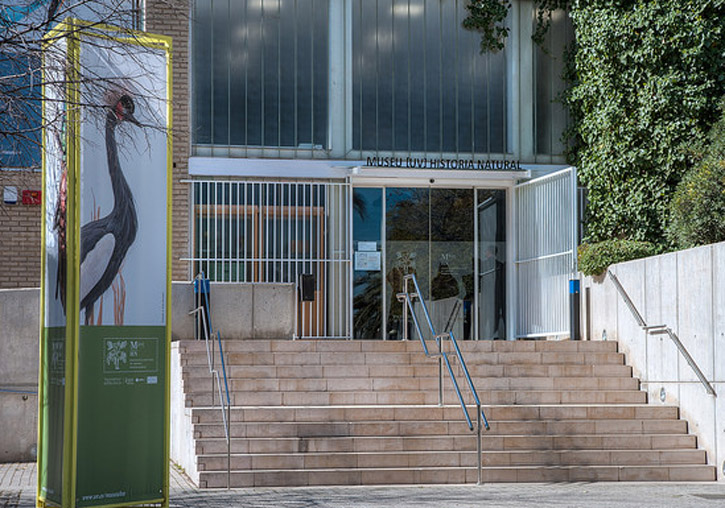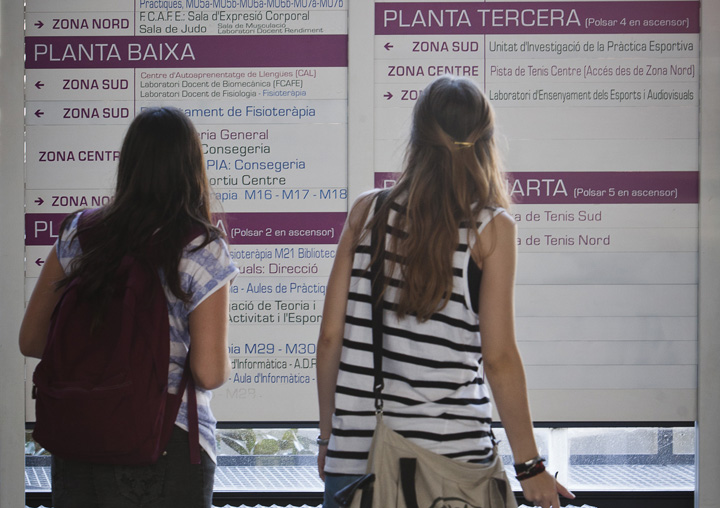Researchers and students from the Universitat de València are promoting the second international congress of paleontology, completely online
- Press Office
- May 22nd, 2020

Nearly 400 researchers of 44 different nationalities from five continents have participated this month in the '2nd Paleontological Virtual Congress (2nd PVC)', a scientific congress of paleontology carried out entirely virtually. During the 15 days of duration, the participants have had the opportunity to share their research and to be in contact with other researchers in paleontology from all over the world. The initiative will conclude with the publication of a book of abstracts that includes a total of 161 scientific contributions.
The congress is supported by a scientific committee composed by 175 specialists in different fields of paleontology and from different nationalities. It has surpassed the number of the edition held in December 2018.
This project, first in the field of paleontology, has been conceived and organized by a team of researchers, doctoral students and master's students from various institutions, such as the Universidad de València, the Institut Cavanilles de Biodiversitat i Biologia Evolutiva, the Museo Paleontológico de Alpuente, the Museu Valencià d'Història Natural and the UNED. In addition, other international institutions should be added to the list of organizers, such as the Museo de La Plata, CONICET, the Institute of Research in Paleobiology and Geology (IIPPG) and the Egidio Feruglio Paleontological Museum in Argentina; the universities of Bristol and Bath in England; and the University of Thessaloniki in Greece. The Universitat de València itself provided the infrastructure and computer support to host the congress. The initiative also has the support of around twenty sponsors, including the Natural History Museum of the Universitat de València, paleontological societies such as the Sociedad Española de Paleontología (SEP) and the Paleontological Society, and other institutions such as Transmitting Science and the Inter-University Master's Degree in Applied Paleontology of the Universities of Valencia and Alicante.
The main objective of the '2nd Paleontological Virtual Congress' is to offer a platform with international scope for the dissemination of the results of their paleontological research to research groups with limited resources. The initiative also aims to address a problem that exists with traditional congresses, the existence of a participation bias that favours researchers from rich countries with good funding for science, to the detriment of those from developing countries. Proof of this is the high level of participation from countries in South America, Africa, the Middle East and Eastern Europe. Other advantages of this type of congress are the reduction of the carbon footprint and, especially these days, the practically null physical interaction between participants, but not preventing the collaboration between them.
The organizing committee of the '2nd PVC' bet since the first edition for a way to take advantage of the possibilities offered by online forums today, but maintaining the essence of scientific conferences as spaces for discussion and dissemination of research. In fact, the very functioning of the congress itself is new: the participants have an online platform, created expressly for the congress, to upload their work and thus make it available to the rest of the attendees, whether in the form of a slide show, scientific poster or video.
The audience had the opportunity to take a virtual visit to the Museum of Natural History of the Universitat de València and to immerse themselves in a journey back in time thanks to the virtual field trip that has been recorded at GEOPARC Bletterbach in Italy. Paleontology is a branch of science that includes a large number of knowledge and methodological areas. For this reason, and with a view to covering as much as possible, this congress has been organized in four general thematic sessions (Paleozoic, Mesozoic, Cenozoic and General Paleontology).
Another novelty was the realization of five specific workshops that include topics such as education and paleontology, fossil insects, palynology, evolution of life on the islands and a thematic session aimed at young researchers.
According to the organizers, in an increasingly connected world, where social networks are the main drivers of public opinion, and in view of the rise of open scientific formats that are increasingly supported, this type of initiative contributes to greater openness, transparency and accessibility of science, both to the general public and among specialists themselves. At the same time, given the current exceptional health situation, this type of congress will increase in the future. "Moreover, this progressive opening up of science from its obscure origins to the movements in favour of free access seems to be the dominant trend in recent years and in the near future; and in this context of the new era of science, paleontology cannot and must not be left behind", they add.
File in: Estudis , Botànica i Geologia















